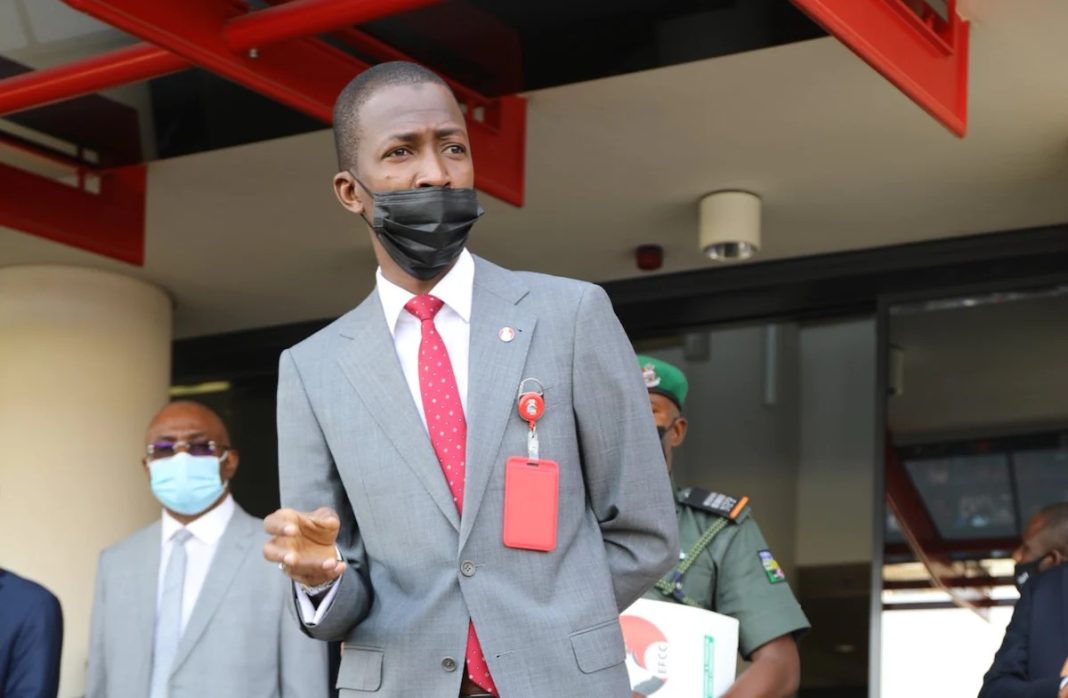ABUJA, Nigeria — The Federal Government has issued a directive allowing Abdulrasheed Bawa, the suspended chairman of the Economic and Financial Crimes Commission, EFCC, access to his legal team and family members while in the custody of the State Security Service, SSS.
The move comes amid criticism of Bawa’s continued detention since June 14, which some senior legal experts describe as unconstitutional and unlawful.
According to inside sources on Monday, August 28, 2023, Bawa has not been cooperating with investigators, refusing to answer questions or volunteer statements.
“We understand it is within his right to either volunteer a statement or decline. Options are currently being weighed on what next measures to be adopted,” said a source who wished to remain anonymous.
Bawa’s legal team has also been held back from filing a fundamental rights enforcement suit, reportedly due to a directive from his father.
“The father said he believes his son will be released when God dictates and that there was no need suing the government,” said a senior lawyer involved in the case.
Senior Advocates of Nigeria, including Rotimi Jacobs, Femi Falana, and Kemi Pinheiro, have been vocal in calling for Bawa’s release.
Jacobs highlighted that under the Administration of Criminal Justice Act (ACJA) 2015, a suspect in Nigeria can only be held under a remand order for a maximum of 56 days.
“The detention of Bawa could no longer be justified in law,” Jacobs stated in a recent release.
This case is raising significant questions about the rule of law and the conduct of state agencies.
With Bawa having been in custody for months without being formally charged, critics argue that this situation is another test for the nation’s commitment to due process and democratic values.
Bawa’s prolonged detention without trial has alarmed advocates of civil liberties, who argue that such actions erode public faith in democratic institutions and principles.
His case now serves as a focal point in the ongoing debate over the government’s adherence to the rule of law.
While the directive to allow access to lawyers and family might be seen as a minor concession, it does little to address the larger legal and ethical questions surrounding Bawa’s continued detention.
With no charges filed and limited cooperation from Bawa himself, the case remains a complex legal tangle that is attracting both national and international scrutiny.







